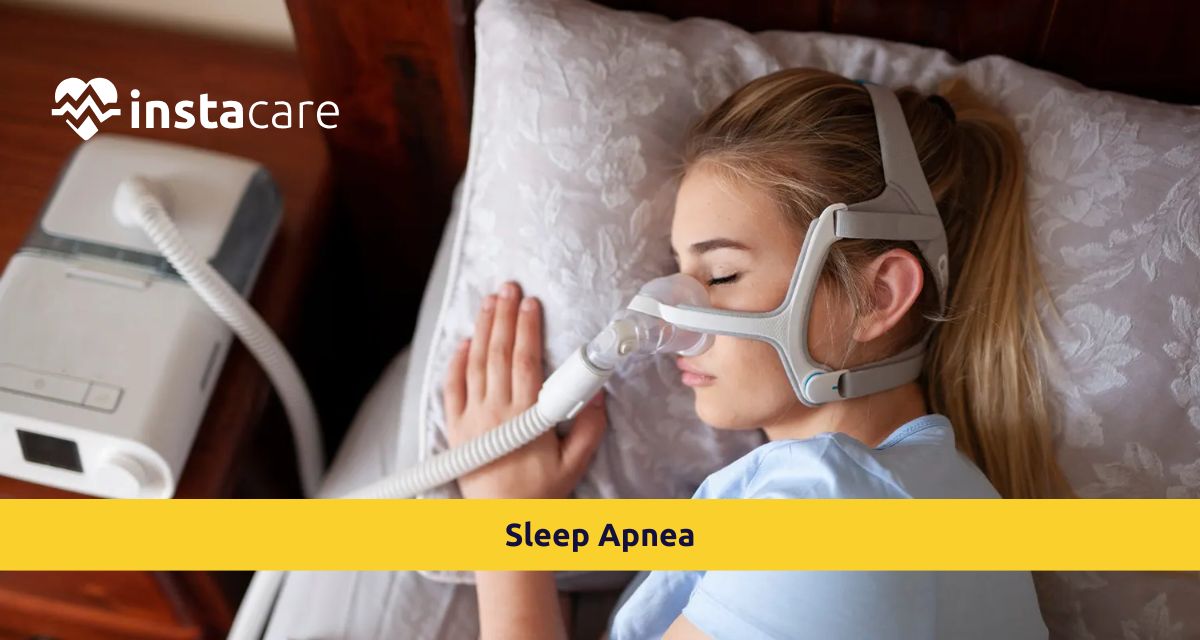Sleep apnea is a chronic sleep disorder that affects millions of individuals worldwide. If not treated, sleep apnea or repeated suspension of breathing during sleep may cause medical disorders. Information about sleep apnea should be obtained regarding its symptoms, causation, and potential treatment. Here, we will tell you what sleep apnea is, the various types of sleep apnea, the symptoms, and How Sleep Apnea Affects the Brain and influences a person's general health.
What is Sleep Apnea?
Sleep apnea is normally divided into three categories: obstructive sleep apnea (OSA), central sleep apnea (CSA), and complex sleep apnea syndrome. Obstructive sleep apnea is the most common, occurring when the throat muscles become too loose to block the airway. Central sleep apnea occurs when the brain does not deliver the proper stimulus to breathing muscles. Complex sleep apnea syndrome is CSA and OSA.
The symptoms of sleep apnea affect patients differently and produce uncomfortable effects throughout their various cases. Nocturnal snoring combined with nighttime gasping of choking represents sleep apnea symptoms which also present as daytime drowsiness and difficulty concentrating with crankiness. Medical assistance requires an early diagnosis of symptoms to receive proper treatment.
Causes of Sleep Apnea
Sleep apnea has numerous causes. Obstructive sleep apnea has risk factors of obesity, age, gender, and heredity. Obese patients are likely to develop sleep apnea because fat deposition occurs around the neck region, thereby constricting the airway. Males are more likely to develop sleep apnea than females, though females experience an increase in Sleep Apnea Risk Factors post-menopause.
Other birth defects include structural defects such as gargantuan tonsils or a deviated septum, which can obstruct air at night. Some diseases, such as
high blood pressure, diabetes, and cardiovascular disease, are also causes of sleep apnea.
Sleep Apnea Diagnosis & Treatment
Sleep Apnea Diagnosis following proper assessment by a physician. It can be diagnosed based on history taking, physical examination, and overnight sleeping testing, which is referred to as polysomnography. Polysomnography measures some body functions during sleep, such as breathing, heart, and oxygen levels. Home sleep apnea testing can also be done at home.
Sleep Apnea Treatment Options vary depending on the severity and etiology of the condition. Treatment can be as easy as weight loss and alcohol or sedative avoidance, which relaxes the throat muscles. The second very common treatment is CPAP, which involves placing a mask around the nostrils or mouth while sleeping to maintain the airway open.
Surgery could be a choice for people with more severe cases, such as patients. Sleep apnea surgery involves removing tissue in the throat or fixing the structural defect. Certain patients can have the jaw position procedure to enhance airflow possibly.
Relationship Of Sleep Apnea With Other Physical Conditions
Sleep Apnea and Snoring
Sleep Apnea, heavy breathing noises, and sleep interruptions called snoring are the most frequent signs of this condition. Sleep apnea develops alongside snoring when nighttime airway closure causes periodic breathing and typical snoring sounds. Healthcare providers must receive referrals for persistent snoring cases even though sleep apnea affects only some snorers.
Sleep Apnea and Heart Disease
Research links Heart Disease with Sleep Apnea, causing the development of cardiovascular disease. All cardiovascular disease originates from sleep apnea, which causes both blood pressure elevation and heart rhythm irregularities, leading patients toward heart attacks and strokes. The heart faces excessive strain when sleep apnea patients experience sudden breathing interruptions and therefore mandates sleep apnea management to avoid heart complications.
Sleep Apnea and Weight Gain
Sleep Apnea and Weight Gain are also bidirectional, as is obesity. Obesity and sleep apnea will accompany each other since obesity leads to the obstruction of airways. The condition can change the sleeping pattern and make a person drowsy and less enthusiastic about performing exercises. This will make the patients with sleep apnea unable to lose some of their weight, thereby progressing them further towards their disease.
Sleep Apnea in Children
Although adults primarily feel sleep apnea, children also feel it. Sleep apnea among children varies from child to child and, therefore, has its respective symptoms felt alongside waking difficulty, behavioral issues, and school issues. Tonsillitis and adenoids are the most common reasons for sleep apnea in children, and one has to react early enough not to suffer from chronic complications.
Sleep Apnea and Insomnia
Insomnia affects the majority of sleep apnea patients. Apnea creates a cycle of degradation that causes problems with sleeping and staying asleep because its sleeping interruptions create both. Sleep apnea must be treated if one would like to reduce sleep and insomnia symptoms.
How Sleep Apnea Impacts the Brain?
Sleep apnea negatively impacts physical wellness and mental operations. The brain experiences three serious negative outcomes because of
sleep apnea: memory loss, difficulty focusing and unstable moods. Treatment of sleep apnea is necessary since the condition leads to brain swelling and tissue modifications due to reduced oxygen intake while asleep.
Conclusion
The medical condition known as sleep apnea manifests complex features that strongly impact physical health and general well-being. Before they begin to take precautions against it, people must acquire a thorough understanding of sleep apnea characteristics and symptoms with explanations of causes while learning existing treatments.
People who merge their symptom understanding with medical counsel can create improved lifestyles to reduce health threats and linked medical conditions. Healthcare providers must provide sleep apnea treatment for anyone who shows symptoms of the condition among themselves or their residents.
Please book an appointment with the
best Pulmonologist in Lahore, Karachi, Islamabad, and all major cities of Pakistan through
InstaCare, or call our helpline at 03171777509 to find the verified doctor for your disease.

